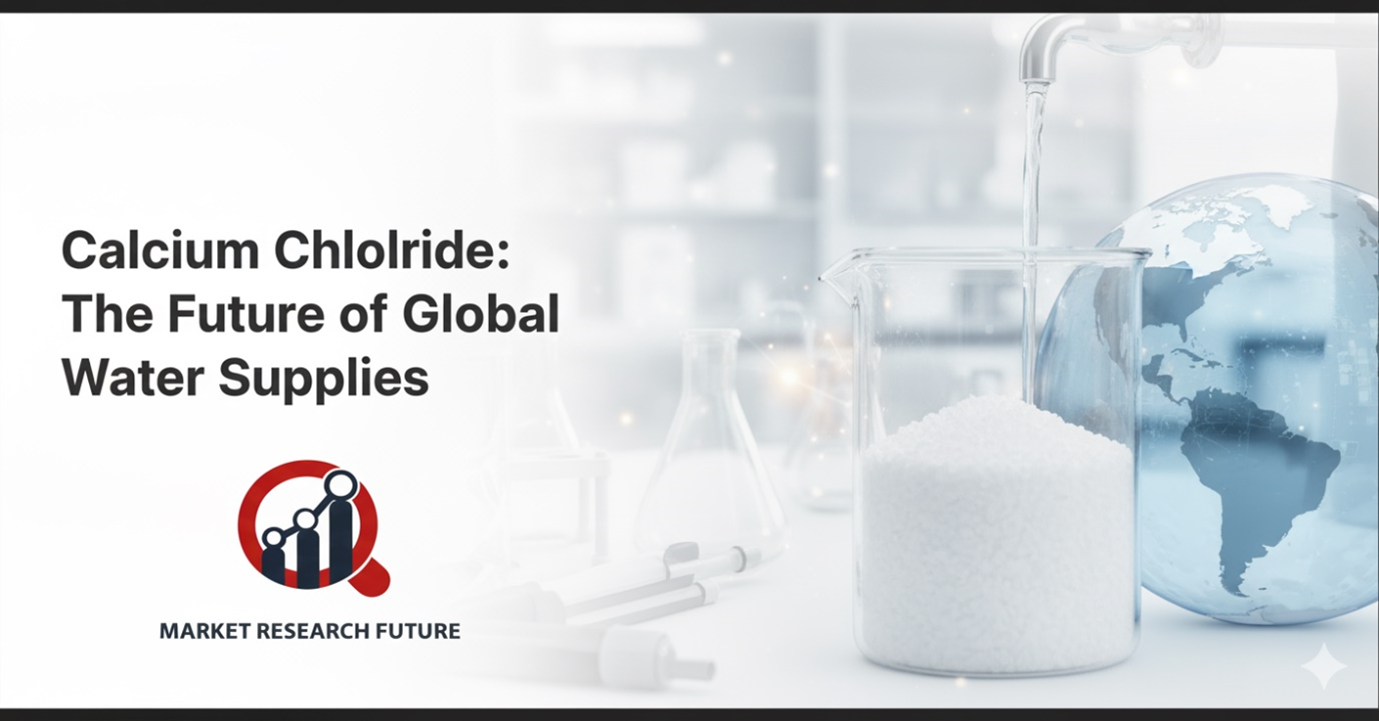Calcium Chloride: The future of global water supplies

Water is one of the most pressing issues of our time. As populations grow and climate change intensifies, communities around the globe are facing increasing pressure on their freshwater resources. From droughts to pollution, the challenges of securing clean water are mounting. Interestingly, one compound—calcium chloride—is gaining attention for its potential to play a vital role in shaping the future of global water supplies.
It may not sound glamorous, but its unique properties and versatile applications could help us rethink how we manage this most essential resource.
Why Calcium Chloride Stands Out
Calcium chloride is a highly soluble salt that has long been used in industries ranging from food processing to construction. Its ability to absorb moisture, control dust, and prevent ice formation makes it widely valuable. But when it comes to water management, calcium chloride stands out for its efficiency in controlling hardness, its role in desalination, and its ability to improve water quality in multiple settings.
The key lies in its chemistry. Calcium chloride dissociates quickly in water, releasing calcium and chloride ions. These ions interact with impurities, helping to neutralize and remove them. This simple reaction makes it an effective and affordable option for large-scale applications where water quality is at stake.
Tackling Water Scarcity Through Desalination
One of the most significant opportunities for calcium chloride lies in desalination. With nearly 97% of Earth’s water locked in oceans, the ability to transform saltwater into drinkable freshwater has become crucial. Desalination plants are already growing in number, especially in the Middle East, North Africa, and coastal regions of Asia. However, these facilities face challenges such as scale buildup and high operating costs.
Calcium chloride can help by conditioning water before and after the desalination process. Its presence helps prevent the scaling that clogs membranes and pipes, reducing maintenance costs and extending the lifespan of equipment. By making desalination more efficient, calcium chloride supports the production of reliable freshwater at a time when it’s needed most.
Improving Agricultural Water Use
Agriculture accounts for about 70% of freshwater withdrawals worldwide, and farmers are under constant pressure to conserve water while maintaining crop yields. Here, calcium chloride offers another advantage. When applied in irrigation systems, it helps manage soil salinity and improve the structure of soil particles. This allows crops to absorb water more effectively, reducing the volume of water required for healthy growth.
In drought-prone regions, this benefit can make a dramatic difference. By making irrigation more efficient, calcium chloride indirectly extends water supplies, ensuring that scarce resources are used more responsibly.
Enhancing Drinking Water Quality
Access to safe drinking water remains a major challenge, especially in developing countries. Contaminants such as heavy metals and organic pollutants can make water unsafe for consumption. Calcium chloride is already used in water treatment facilities to improve taste and safety. Its ions help neutralize harmful compounds and stabilize water chemistry, making it safer to drink.
What’s even more promising is its role in emergency water supplies. During natural disasters or humanitarian crises, calcium chloride can be used in portable treatment systems to quickly provide potable water. In such situations, speed and reliability matter, and calcium chloride delivers on both counts.
A Sustainable Path Forward
Sustainability is at the heart of conversations about water. While calcium chloride alone won’t solve the global water crisis, it offers a powerful tool in a broader toolkit. By making designation more efficient, supporting agriculture, and improving drinking water safety, it contributes to strategies that maximize the use of available resources.
Importantly, calcium chloride is abundant and relatively inexpensive. Its wide availability means it can be deployed across both developed and developing nations, helping bridge the gap between regions with advanced infrastructure and those still struggling with basic access.
Conclusion
The future of global water supplies will depend on a mix of innovation, collaboration, and smart resource management. Calcium chloride may not be the most obvious hero in this story, but its versatility and effectiveness position it as a valuable ally in the fight against water scarcity. Whether through making desalination more accessible, helping farmers grow with less water, or ensuring safe drinking water in emergencies, its contributions cannot be overlooked.
As the world continues to search for practical solutions to its growing water challenges, calcium chloride is poised to take on a larger role. Sometimes, it’s the simplest compounds that hold the most promise for solving our biggest problems.

Leave a Comment